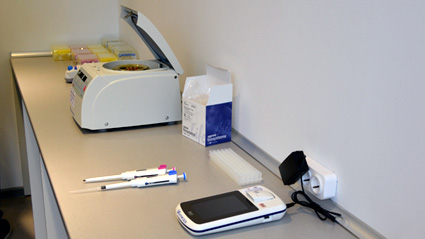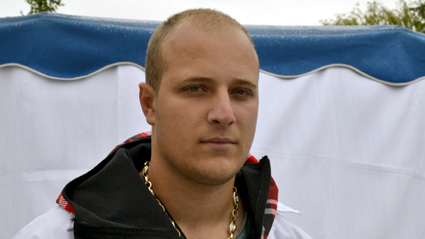Minister of Agriculture and Food Desislava Taneva and Director of the Swiss Federal Office for Agriculture (FOAG) Bernard Lehmann unveiled at a solemn ceremony the National DNA Analysis Genetic Lab. The funding for the lab equipment has been provided by the Bulgarian-Swiss Cooperation Programme under the Let’s Link Nature’s Protection with the Sustainable Development of Rural Areas Project. The lab can be found with the Executive Agency for Selection and Reproduction of Livestock Breeding in Sofia. It will help for the distinction of certain types of animals’ breeds via modern technologies. More from Minister Taneva:
 “This will also assist us in the creation of breeding programmes via the different associations for the raising of a certain breed, following the latest programmes. The animals selected will be highly productive according to the breed’s type and purpose – whether it is used for meat, milk etc. Bulgaria has extreme biodiversity in this aspect – many local, old, typically Bulgarian breeds, all kinds of animals, mostly sheep. We have selected 21 Bulgarian breeds so far. This set of tools, unveiled today at the National DNA Analysis Genetic Lab will give us a chance to find out the genes of each animal, raised in Bulgaria. This scientific method is the latest used by all developed countries in regard with livestock breeding. The lab is worth some EUR 250,000, no VAT included and is a part of the For the Balkan and the People project. The lab will allow us to have the best genetic control of animals, making sure they are precisely the ones we want.”
“This will also assist us in the creation of breeding programmes via the different associations for the raising of a certain breed, following the latest programmes. The animals selected will be highly productive according to the breed’s type and purpose – whether it is used for meat, milk etc. Bulgaria has extreme biodiversity in this aspect – many local, old, typically Bulgarian breeds, all kinds of animals, mostly sheep. We have selected 21 Bulgarian breeds so far. This set of tools, unveiled today at the National DNA Analysis Genetic Lab will give us a chance to find out the genes of each animal, raised in Bulgaria. This scientific method is the latest used by all developed countries in regard with livestock breeding. The lab is worth some EUR 250,000, no VAT included and is a part of the For the Balkan and the People project. The lab will allow us to have the best genetic control of animals, making sure they are precisely the ones we want.”
 Farmer Yane Kulov attended the unveiling of the new lab, offering part of his production. The man raises rare animal breeds: Karakachan Sheep, the Bulgarian Murra buffalo etc. He produces yoghurt, sheep and buffalo cheese. Here is what Yane says:
Farmer Yane Kulov attended the unveiling of the new lab, offering part of his production. The man raises rare animal breeds: Karakachan Sheep, the Bulgarian Murra buffalo etc. He produces yoghurt, sheep and buffalo cheese. Here is what Yane says:
“The lab is useful for all livestock breeders in Bulgaria. We can control the quality of the animals and the breed’s purity – whether it is real or not. Sometimes the papers say that everything is real and in fact the situation turns out to be a bit different…”
English version: Zhivko Stanchev
Photos: Luiza LazarovaThe usurpation of cultural heritage is one of the many inevitable consequences of any military conflict, both historically and today. Until the end of the war in Ukraine, it is impossible to adequately analyse the extent of the damage caused to the..
Athens plans to modernise the Greek army by 2030 Greece's Defence Minister Nikos Dendias presented the plan for changes in the army to the parties in parliament. The reforms will cover all three branches of the military. By 2030, 33 units..
A short video kaleidoscope of the "untold stories" of worthy Bulgarians - scientists, entrepreneurs, engineers, artists - who have contributed to our country's good image in the eyes of the world opened an unconventional public forum that showcased the..
Nuredin Nuredinaj comes from the historical-geographical region of Gòra in Northeastern Albania, where 90% of the inhabitants identify themselves as..

+359 2 9336 661
